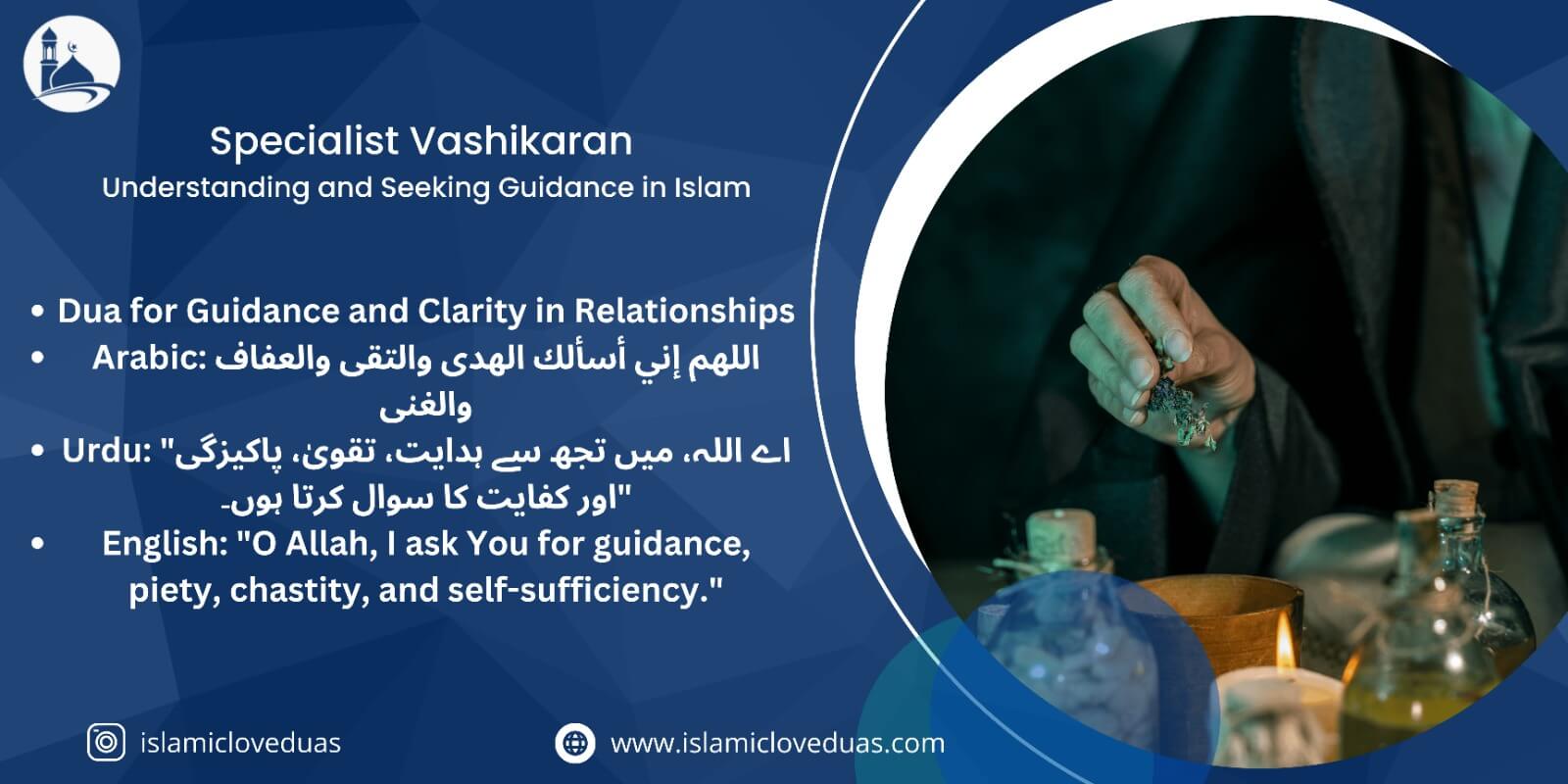Peace and blessings to all our readers. In today’s world, many people face challenges in their relationships, careers, and personal lives. Some people may look for quick solutions and turn to specialist vashikaran, which involves certain methods and rituals that claim to influence or control someone else’s thoughts, feelings, or actions. Maulana Abdul Aziz, our great scholar, has helped many people who are facing difficulties in their lives. With his guidance and Allah’s blessings, they now live happy, peaceful lives. If you have any questions or problems, you can contact Islamicloveduas for help from our scholar Abdul Aziz.
However, as Muslims, it is important to be careful with practices like specialist vashikaran. Instead of trying to control others, Islam encourages us to seek guidance and help directly from Allah. Our faith teaches us to rely on Allah’s wisdom and to pray for support during difficult times. This article will explore how Muslims can seek divine help and protection rather than depending on practices like specialist vashikaran.
What is Specialist Vashikaran?
The term “specialist vashikaran” comes from a non-Islamic concept, aiming to influence others’ minds through spells or rituals. People often use it to gain control over someone they love or settle conflicts. Although it may seem tempting to use such methods for personal gains, Islam does not encourage this approach. Instead, Muslims are advised to trust Allah and believe that everything, including our relationships, is within His control.
Why You Should Avoid Vashikaran
- Islam Prohibits Practices Similar to Black Magic: In Islam, any practice that resembles black magic, like vashikaran, is strictly prohibited. Such methods go against Islamic principles.
- Vashikaran Involves Manipulation: Vashikaran involves trying to control or manipulate someone’s mind, feelings, or actions, which is not encouraged in Islam. Instead, Islam emphasizes respect for everyone’s freedom and personal choices.
- The Quran Warns Against It: The Quran advises against methods like vashikaran that interfere with free will and manipulate others for personal gains. Engaging in such practices is seen as going against Allah’s commands.
- Allah Gives Us Free Will: Islam teaches that Allah has given every human being free will to make their own choices. Trying to control someone else through vashikaran violates this principle of free will.
- Prayers (Duas) Are a Better Alternative: Muslims are encouraged to rely on duas (prayers) rather than trying to control others. Duas allows us to ask Allah for help, guidance, and strength to face challenges without resorting to questionable practices.
- Relying on Allah’s Wisdom is Safer: Islam teaches us to have faith in Allah’s wisdom and timing. Seeking help through Islamic ways keeps us on a path that aligns with Allah’s guidance and brings true peace and protection.
- Protects from Harmful Intentions: Turning to Allah through prayer protects us from developing harmful intentions or trying to influence others wrongly. Instead, it encourages us to work on our inner peace and trust Allah’s plans.
Seeking Help through Dua Instead of specialist Vashikaran
Instead of resorting to vashikaran, we should turn to dua. Dua is a powerful tool in Islam, allowing us to directly communicate with Allah and ask for His guidance, protection, and blessings. By making sincere duas, we can resolve difficulties and bring positive changes into our lives.
Here is a powerful dua that you can recite when you face issues in your relationships or seek a solution:
Dua for Guidance and Clarity in Relationships
Arabic: اللهم إني أسألك الهدى والتقى والعفاف والغنى
Urdu: “اے اللہ، میں تجھ سے ہدایت، تقویٰ، پاکیزگی اور کفایت کا سوال کرتا ہوں۔”
English: “O Allah, I ask You for guidance, piety, chastity, and self-sufficiency.”
How to Use Duas to Overcome Difficulties
Instead of relying on vashikaran, we can recite these duas regularly and with sincerity. Always remember that Allah’s timing is best, and He knows what’s beneficial for us. By patiently praying and putting our trust in Allah, we align ourselves with His will, which can open doors to positive changes.
Another effective dua for specialist vashikaran when feeling helpless or unsure is:
Dua for Trusting Allah’s Plan
Arabic: حَسْبِيَ اللهُ لا إِلَهَ إِلاَّ هُوَ عَلَيْهِ تَوَكَّلْتُ وَهُوَ رَبُّ الْعَرْشِ الْعَظِيمِ
Urdu: “مجھے اللہ کافی ہے، اس کے سوا کوئی معبود نہیں، میں نے اسی پر بھروسہ کیا، اور وہی عظیم عرش کا مالک ہے۔”
English: “Sufficient for me is Allah; there is no deity except Him. Upon Him, I rely, and He is the Lord of the Great Throne.”
Conclusion:
In conclusion, while specialist vashikaran claims to offer control, Islam provides us with the best guidance through prayer, patience, and reliance on Allah. We should distance ourselves from any form of manipulation or control over others. Islam teaches us to believe in the power of dua and trust in Allah’s divine wisdom. By making sincere duas and staying away from practices that compromise our faith, we can face challenges with clarity, peace, and a pure heart.
Trust in Allah, for His wisdom and timing are perfect, and He will always guide you to what’s best for you.
Frequently Asked Questions (FAQs)
Q1: Is it permissible in Islam to use practices like vashikaran to improve relationships?
A1. No, Islam does not permit practices like vashikaran, as they involve manipulation and go against the principle of free will given by Allah. Instead, Islam encourages Muslims to turn to Allah directly through prayer (dua) for guidance and support. Relying on Allah and making sincere duas is considered a respectful, faith-aligned way to seek help in relationships.
Q2: How can I rely on Allah instead of using vashikaran in challenging times?
A2. In challenging times, you can rely on Allah by making regular and sincere duas (prayers), trusting His wisdom, and practicing patience. Islam teaches that Allah’s timing is perfect, and He knows what is best for us. By turning to Him for support rather than resorting to manipulative practices, you align yourself with His guidance, which brings true peace and protection.

